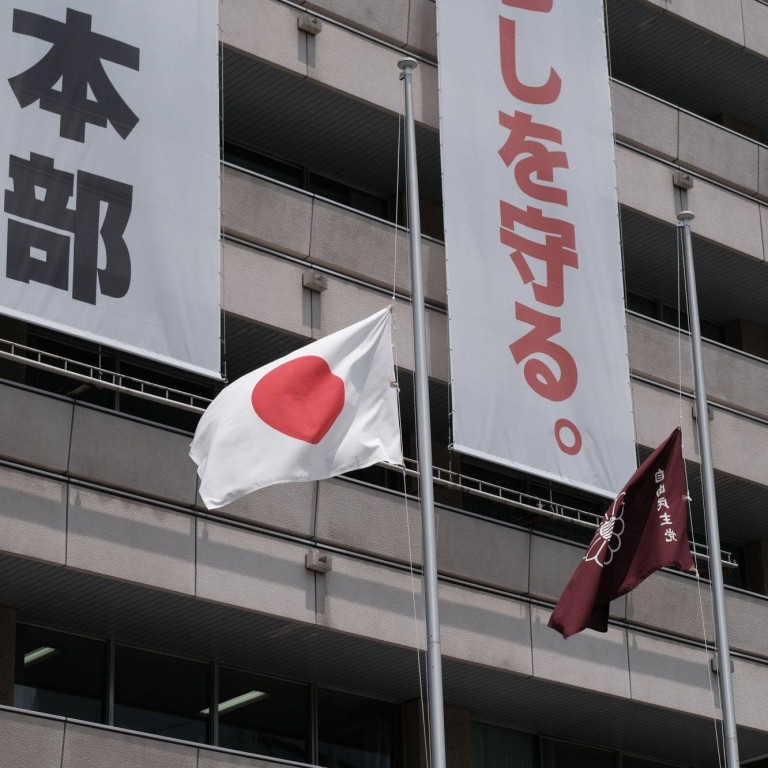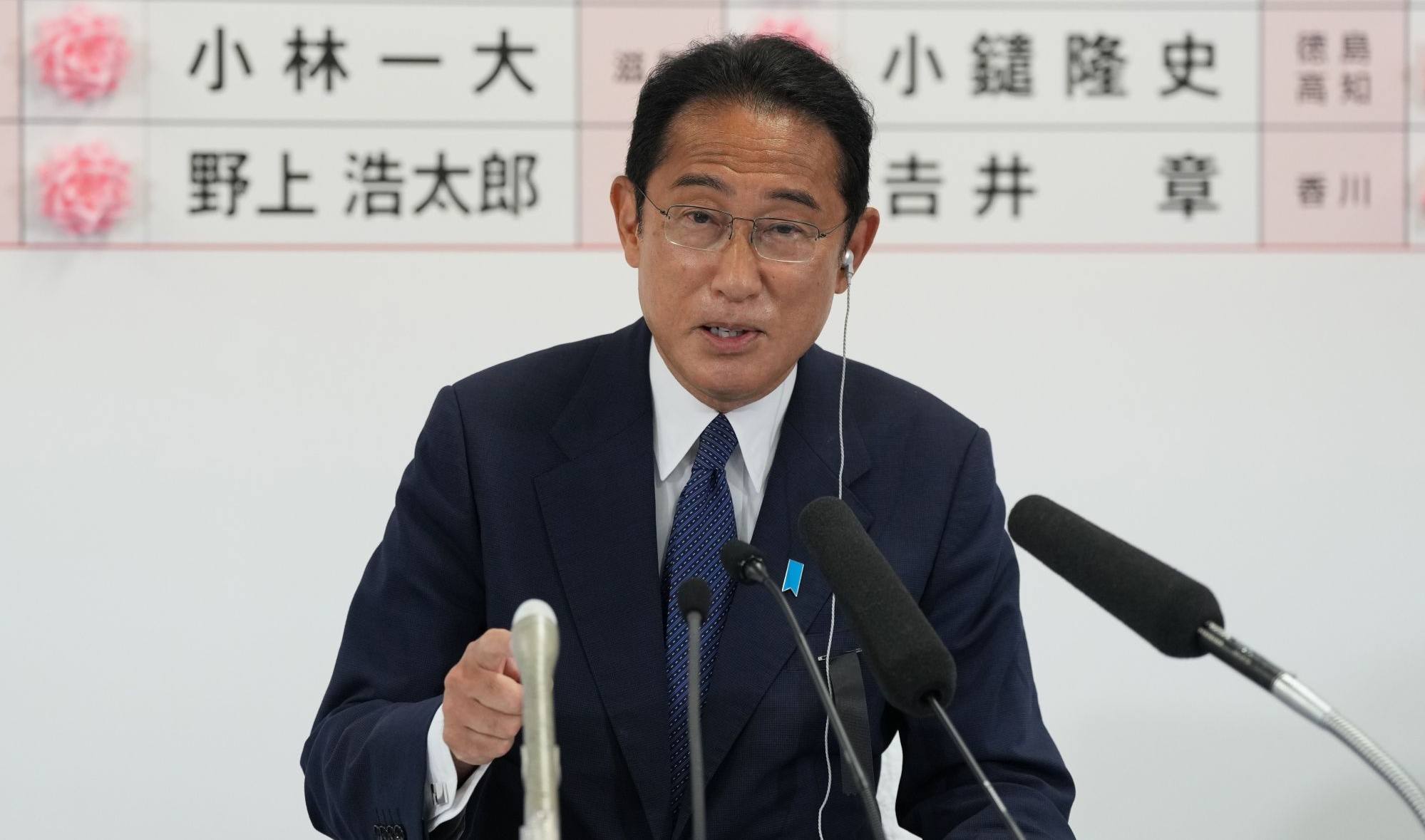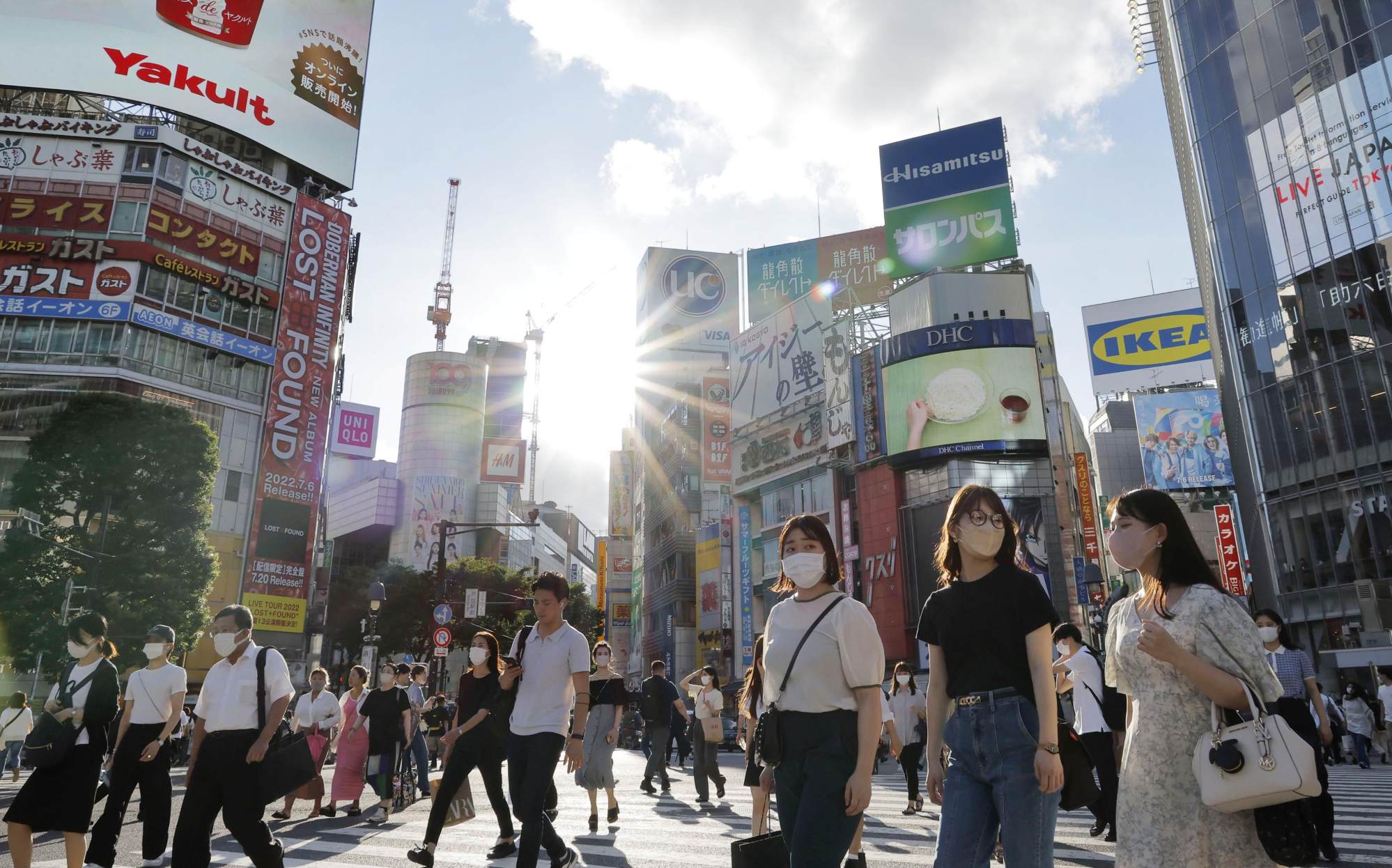
Japan’s energy crisis, Covid-19 woes likely to eclipse LDP’s push to amend constitution
- Fresh off a major electoral win, the LDP now has the two-thirds majority in both houses the government needs to call a referendum on the constitution
- But more pressing issues like the rising costs of gas and food, a Covid-19 resurgence and an ageing population could determine Kishida’s legacy
Shinzo Abe to have private funeral, with separate ceremony for friends of Japan
Michael Heazle, adjunct professor at the Griffith Asia Institute in Australia’s Griffith University, said it was hard to know exactly how much Abe’s assassination had influenced the outcome of the upper house election.
Even before Abe’s assassination, the opposition remained in disarray and pre-election polling suggested that the government would win comfortably, Heazle said.
The ruling LDP-Komeito coalition, together with pro-constitutional reformist Japan Innovation Party, Heazle noted, now have the two-thirds majority in both houses the government needs to call a referendum on the constitution.
“Kishida is now in a better position to push for constitutional change but he may have been anyway,” Heazle said, adding that it remains unclear if Kishida is keen to invest his political capital into winning on a “still very controversial and divisive issue”.

Japan currently faces various major and growing social and economic challenges “that could damage his government” and which demanded the attention of the Kishida government, Heazle noted.
Government data showed that the proportion of people aged 15 to 64 in 2021 stood at a record low of 59.4 per cent while those aged 65 or older hit a record high of 28.9 per cent. People aged 14 or younger accounted for a record-low 11.8 per cent.
In recent years, government reports have pointed out that Japan’s public pension system will be inadequate in sustaining people’s standard of living in a rapidly ageing society.
Akitoshi Miyashita, an international relations professor at Tokyo International University said that while constitutional revision is certainly on Kishida’s agenda, the prime minister also has to tackle more important issues such as the rising prices of gas and food, and the resurgence of Covid-19 cases in the country.
“If he fails to cope with these issues effectively, he may not be able to work on constitutional revision,” Miyashita noted.
According to Japanese economic data last month, food manufacturers in Japan have raised prices due to rising costs for raw materials and crude oil, a trend which is also seen in countries across the region as economies recover from the pandemic and due to global supply chain disruptions.
On Sunday, Japan reported 54,071 new coronavirus cases, up from 45,000 last Wednesday, a resurgence in the wake of an earlier decline that prompted the country to ease travel restrictions for foreign tourists.

As compared to Abe, Kishida appears to be “more moderate and less nationalistic on defence issues”, Miyashita said, adding that Kishida is from Hiroshima and have presented himself “as a politician of peace”.
“Precisely due to this popular image, Kishida may be an ideal leader to implement constitutional revision as most Japanese trust his intention,” Miyashita added.
During World War II, an American B-29 bomber dropped the world’s first deployed atomic bomb over the Japanese city of Hiroshima, killing an estimated 80,000 people and the subsequent deaths of tens of thousands more due to radiation exposure.
Miyashita said that opposition parties that oppose constitutional revision such as the Social Democratic Party and Japan Communist Party, are politically insignificant.
“Komeito, a coalition partner of LDP, may express some concern for constitutional revision, but I think in the end they will go along with the LDP,” Miyashita added.
Obstacles ahead
Kazuto Suzuki, a professor at the University of Tokyo’s Graduate School of Public Policy, said that Kishida was unlikely to be enthusiastic about constitutional reform as he prioritised his “New Capitalism” and “Digital Garden City Nation” plans.
The former refers to the public-private sector partnership or economic model aimed at reducing social disparities, and fostering faster economic growth and higher wages, while the latter is aimed at achieving rural-urban digital integration and transformation.
James Brown, associate political science professor at Temple University’s Japan campus said that one of the major obstacles to constitutional revision was in getting the changes approved in a public referendum.
Polls show that there is no majority in favour of revision
“Polls show that there is no majority in favour of revision,” Brown said, adding: “Were a prime minister to pursue revision aggressively, then have those changes rejected in a referendum, it would actually set back the cause of constitutional revision”.
“It would also be the end of their premiership,” Brown said.
In a survey conducted by the Asahi newspaper in May, a record high 56 per cent of Japanese voters said there was a need to change the pacifist Constitution. But in another survey conducted in the same month by Japanese public broadcaster NHK, only 35 per cent of the respondents thought the constitution needed an amendment.
Promulgated in 1946, Article 9 of Japan’s constitution renounces the country’s right to wage war and forbids it from maintaining “land, sea, and air forces, as well as other war potential”.
To amend it, over two-thirds of lawmakers in both the upper house and the House of Representatives must vote in favour and a majority approval of voters in a national referendum will also be needed.
Will Japan’s Upper House polls give LDP a mandate to amend constitution?
Brown said that while the war in Ukraine may convince some Japanese of the need for their country to be stronger militarily to defend itself from “aggressive authoritarian states”, others will be reminded of the horrors of war.
“This will encourage them to grasp ever more firmly to Japan’s pacifist constitution,” Brown said.
Heazle from the Griffith Asia Institute said a major challenge for any plans to change the constitution will be the difficulty in reaching an agreement on what to reform and how.
“While many would support constitutional recognition of the Self Defence Forces (SDF), other changes to Article 9 would be more difficult,” Heazle noted.
Abe had long called for clarifying the legal status of the country’s SDF by explicitly mentioning it in the Constitution to end arguments that the forces are unconstitutional.
The University of Tokyo’s Suzuki said Abe was able to introduce partial implementation of “collective security” without changing the constitution.
“Among Abe’s achievements, the establishment of the peace and security legislation was one of the biggest,” Suzuki said, referring to legislation introduced in 2015 and which came into effect the following year.
The legislation provided the legal foundation for the reinterpretation of Article 9 to allow Japan to exercise the right of “collective self-defence” under specific conditions.
Given the difficulty in amending the constitution, Suzuki noted that Kishida could potentially choose to increase defence spending, introduce long-range missiles to the country’s self-defence arsenal or deploy a quasi-aircraft carrier.
“If the constitutional amendment succeeds in the future, Japan is likely to get rid of the constraint of the pacifist constitution, can participate in wars overseas and … develop into a military power, which will be very harmful to Japan, the Asia-Pacific region and the world”, said Liu Jiangyong, vice dean of the Institute of Modern International Relations at Tsinghua University, in Global Times.


